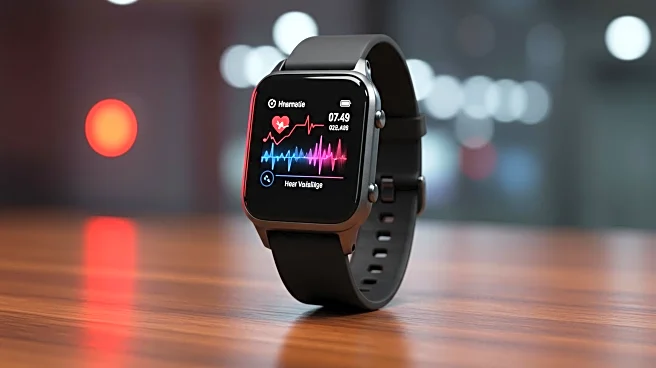What is the story about?
What's Happening?
Heart rate variability (HRV) is a health metric available on most smartwatches, measuring the resilience of the autonomic nervous system. HRV reflects the balance between the sympathetic and parasympathetic nervous systems, which control involuntary processes like heart rate and breathing. A higher HRV indicates a healthier stress response, suggesting the body is calm but alert. Research suggests HRV could predict mortality and help manage stress reactions. HRV varies significantly among individuals, influenced by genetic factors and lifestyle choices. Monitoring HRV over time can provide insights into personal health and stress levels.
Why It's Important?
Understanding HRV can have significant implications for personal health management. It offers a way to monitor stress levels and overall health, potentially predicting health issues before they become serious. For athletes and individuals under stress, HRV can guide adjustments in training and lifestyle to optimize performance and well-being. The metric encourages proactive health management, emphasizing the importance of balancing stress and relaxation. As wearable technology becomes more prevalent, HRV could play a crucial role in personalized health care, offering a non-invasive method to track and improve health outcomes.
What's Next?
As awareness of HRV grows, more individuals may use this metric to guide lifestyle changes and stress management strategies. Health professionals might increasingly incorporate HRV data into patient care, using it to tailor interventions and monitor progress. The development of more sophisticated wearables could enhance the accuracy and utility of HRV measurements, making them a standard part of health monitoring. Additionally, research into HRV could expand, exploring its potential in predicting various health conditions and improving mental health outcomes.
Beyond the Headlines
HRV's role in health management highlights the intersection of technology and wellness, offering a glimpse into the future of personalized medicine. It raises questions about data privacy and the ethical use of health metrics, as wearables collect sensitive information. The widespread adoption of HRV monitoring could shift health care towards prevention, reducing the burden on medical systems by catching issues early. This development underscores the importance of educating the public about interpreting and using health data responsibly.
















